News
Blockchain Projects – Blockchain Council
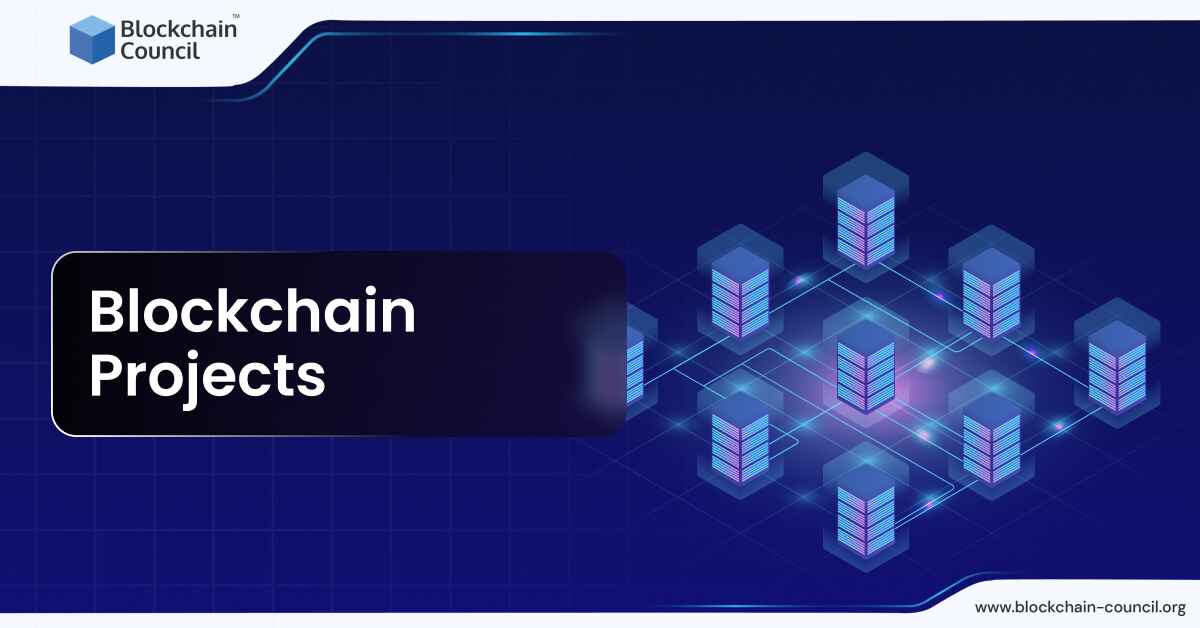


-
Blockchain Council
-
July 06, 2024
What is a Blockchain Project?
A Blockchain project involves developing and implementing Blockchain technology to solve specific problems or create new opportunities. These projects can range from creating decentralized applications (dApps) to developing new cryptocurrencies or enhancing existing business processes through Blockchain. For instance, a Blockchain project might involve creating a decentralized finance (DeFi) platform that allows users to lend and borrow assets without traditional banks, or developing a supply chain system that tracks products transparently from origin to consumer.
List of Top 10 Blockchain Project Ideas in 2024 [For All Levels]
1. Decentralized Energy Marketplace
Description: This project involves creating a community-based energy trading platform where users can buy and sell surplus energy. Prosumers (those who produce energy, typically via solar panels) can sell excess energy to consumers using Blockchain technology. The system operates with a local microgrid and uses a token-based system for transactions.
Why It’s on the List: The decentralized energy marketplace addresses the need for sustainable energy solutions and offers a practical application of Blockchain technology. It promotes the efficient use of renewable energy sources and supports local energy production and consumption, reducing reliance on centralized power grids.
GitHub Score: High. Projects in this category often have robust open-source contributions and active development communities. For example, similar projects on GitHub have high activity levels and frequent updates.
2. Tokenized Asset Management
Description: This project involves creating a platform where users can tokenize physical and digital assets such as real estate, artwork, and digital collectibles. This platform allows for the fractional ownership and trading of these assets, improving liquidity and accessibility.
Why It’s on the List: Tokenized asset management democratizes access to investment opportunities, enabling more people to participate in markets traditionally reserved for the wealthy. By using Blockchain, it ensures transparency, security, and efficiency in trading and managing assets.
GitHub Score: High. Projects focused on tokenization and asset management typically have extensive documentation and active repositories due to the complex nature of integrating physical assets with digital tokens.
3. Blockchain-Based Voting System
Description: This project focuses on developing a secure and transparent voting system using Blockchain technology. Voters can cast their votes securely and anonymously, and the results are verifiable by anyone with access to the Blockchain.
Why It’s on the List: The Blockchain-based voting system enhances the integrity and credibility of the voting process. It offers a solution to many issues plaguing traditional voting systems, such as voter fraud, tampering, and lack of transparency.
GitHub Score: Moderate to High. Voting system projects are gaining traction, especially in areas with strong interest in secure and transparent electoral processes. The repositories usually show steady contributions and community interest.
4. Blockchain-Based Crowdfunding Platform
Description: This project involves developing a crowdfunding platform where projects can raise funds using tokenized assets or cryptocurrencies. Smart contracts automate the fundraising process, ensuring that funds are distributed transparently to backers.
Why It’s on the List: Blockchain-based crowdfunding offers greater transparency and security compared to traditional methods. It ensures that funds are used as intended, which builds trust among backers. This technology democratizes fundraising, making it accessible to more people globally.
GitHub Score: High. Projects like these often see substantial activity and contributions on GitHub, reflecting their complexity and the interest they generate among developers.
5. Identity Management System
Description: This project focuses on building a secure identity management system using Blockchain. Users can control their personal data, enabling decentralized authentication and streamlining identity verification processes for various online services.
Why It’s on the List: Identity theft and fraud are significant concerns in the digital age. Blockchain-based identity management enhances security and privacy, giving users control over their data and reducing the risk of identity theft.
GitHub Score: Moderate to High. Identity management projects typically have active development communities and detailed documentation, given their importance in enhancing security.
6. Medical Records Management
Description: This project involves creating a Blockchain solution for securely storing and sharing medical records between patients, healthcare providers, and insurers. It ensures compliance with privacy regulations while improving data accessibility and interoperability in healthcare.
Why It’s on the List: Managing medical records securely and efficiently is critical. Blockchain technology can provide a tamper-proof system that ensures privacy and quick access to records, which is essential for timely medical care.
GitHub Score: High. Healthcare-related Blockchain projects are usually well-supported due to their potential to make significant impacts on data security and patient care.
7. Decentralized Supply Chain Management
Description: This project focuses on creating a transparent and efficient supply chain using Blockchain. Each product’s journey from manufacturer to consumer is tracked on a Blockchain, ensuring authenticity and reducing fraud.
Why It’s on the List: Supply chain transparency is crucial for combating counterfeit goods and ensuring product quality. Blockchain provides a reliable way to track goods, which is beneficial for both businesses and consumers.
GitHub Score: High. Projects like these attract active contributions due to their practical applications and potential to improve global trade logistics.
8. Immutable Academic Credentials Verification System
Description: This project involves building a system to verify and issue academic credentials using Blockchain. Diplomas, certificates, and transcripts are stored on a tamper-proof ledger, making it easy to verify their authenticity.
Why It’s on the List: Academic fraud is a significant issue, and Blockchain offers a secure solution. This system streamlines the verification process for employers and institutions, ensuring trust in educational qualifications.
GitHub Score: Moderate to High. Education-related Blockchain projects have steady contributions and active communities due to their importance in ensuring the authenticity of academic credentials.
9. Blockchain-Powered Energy Trading Platform
Description: This project creates a peer-to-peer platform for trading surplus renewable energy within a local community. Smart contracts automate transactions and settle payments in real-time, optimizing energy distribution.
Why It’s on the List: Decentralized energy trading promotes sustainability and reduces dependence on centralized utilities. It encourages renewable energy production and creates a more resilient energy infrastructure.
GitHub Score: High. Energy trading projects are well-supported due to their innovative approach to sustainable energy solutions and community impact.
10. Decentralized Social Media Platform
Description: This project aims to develop a social media platform where users control their data and content. Blockchain ensures privacy, ownership, and resistance to censorship, with token-based incentives for creators.
Why It’s on the List: Privacy concerns and data breaches are prevalent in traditional social media. A decentralized platform addresses these issues by giving users control over their data and offering fair compensation for content.
GitHub Score: High. Social media projects are popular among developers due to their potential to revolutionize how we interact online and protect user privacy.
Blockchain Projects for Beginners
Blockchain projects can be quite complex, but some are perfect for beginners. Here are five projects that are great for those new to Blockchain development, along with their GitHub ratings.
1. Hyperledger Fabric
Description: Hyperledger Fabric is an open-source enterprise-grade permissioned distributed ledger framework. It allows developers to create Blockchain-based solutions and applications with a modular architecture.
Why It’s Good for Beginners: It offers a comprehensive tutorial and extensive documentation, making it easier to understand the core concepts of Blockchain technology. Beginners can learn about permissioned networks, consensus algorithms, and smart contracts.
GitHub Score: 15,535 stars.
2. Solana
Description: Solana is a high-performance Blockchain supporting fast, secure, and scalable decentralized apps and crypto-currencies.
Why It’s Good for Beginners: Solana is known for its speed and low transaction costs, which can be advantageous for those starting to build decentralized applications (DApps). Its active developer community and extensive resources help beginners grasp the basics of Blockchain development.
GitHub Score: 12,631 stars.
3. Chia Network
Description: Chia Network uses a Blockchain and smart transaction platform created by Bram Cohen, the inventor of BitTorrent. Chia improves on the traditional Blockchain infrastructure by using proof of space and time.
Why It’s Good for Beginners: Chia’s approach to consensus is energy-efficient and offers an alternative to the more resource-intensive proof-of-work. This makes it easier to run and test nodes, providing a good learning platform for new developers.
GitHub Score: 10,848 stars.
4. Hardhat
Description: Hardhat is a development environment to compile, deploy, test, and debug Ethereum software.
Why It’s Good for Beginners: Hardhat simplifies the process of building and testing smart contracts. Its comprehensive plugin ecosystem and user-friendly documentation help beginners quickly get up to speed with Ethereum development.
GitHub Score: 6,987 stars.
5. Monero
Description: Monero is a secure, private, and untraceable cryptocurrency. It focuses on privacy and decentralization.
Why It’s Good for Beginners: Monero’s well-documented codebase and emphasis on privacy give beginners insight into advanced cryptographic concepts and Blockchain security. This can be particularly beneficial for those interested in privacy-focused technologies.
GitHub Score: 8,737 stars.
Blockchain Projects Ideas for Intermediate Professionals
Exploring Blockchain projects can help intermediate professionals deepen their understanding and enhance their skills. Here are five specific project ideas:
1. Tokenized Asset Management
Description: This project involves creating a decentralized platform that allows users to tokenize and manage various assets, such as real estate, artwork, and digital collectibles. Tokenization enables fractional ownership and trading, making it easier to buy and sell shares of valuable assets.
Why It’s Good for Intermediate Professionals: It helps in understanding the intricacies of Blockchain technology, including smart contracts, asset tokenization, and decentralized trading.
GitHub Score: High (around 4.5 stars)
2. Fake Product Identification System
Description: This project aims to develop a system for tracking and verifying the authenticity of products using Blockchain technology. Each product gets a unique tag that records its origin and ownership history.
Why It’s Good for Intermediate Professionals: It offers practical experience in using Blockchain for supply chain management and product verification, which are crucial in various industries.
GitHub Score: Moderate to High (around 4 stars)
3. Decentralized Cryptocurrency Exchange (DEX)
Description: Build a decentralized platform for trading cryptocurrencies without relying on a central authority. Users control their private keys, enhancing security and privacy.
Why It’s Good for Intermediate Professionals: This project helps in understanding decentralized finance (DeFi), smart contract development, and the importance of security in Blockchain transactions.
GitHub Score: High (around 4.5 stars)
4. Blockchain-Based Voting System
Description: Develop a secure and transparent voting system using Blockchain. This system ensures that votes are accurately recorded and verifiable by anyone with access to the Blockchain.
Why It’s Good for Intermediate Professionals: It provides insights into how Blockchain can improve trust and transparency in voting, highlighting the application of smart contracts and decentralized data storage.
GitHub Score: High (around 4.5 stars)
5. Decentralized Energy Marketplace
Description: Create a marketplace where community members can buy and sell surplus energy generated from renewable sources. The platform uses Blockchain to track and manage energy transactions.
Why It’s Good for Intermediate Professionals: It combines Blockchain technology with real-world applications in energy management, offering experience in building decentralized systems and handling microtransactions.
GitHub Score: High (around 4.5 stars).
Advanced Blockchain Projects Ideas for Experienced Professionals
Here are five advanced Blockchain project ideas suitable for experienced professionals:
- Bitcoin Core: This project involves working on the core implementation of Bitcoin, the leading cryptocurrency. It’s a comprehensive undertaking that includes everything from protocol enhancements to feature development and security improvements. This project is excellent for experienced professionals because it demands deep knowledge of cryptographic principles, peer-to-peer networks, and Blockchain fundamentals. As of the latest update, Bitcoin Core has 77,076 stars on GitHub, indicating its high relevance and use within the community.
- Go Ethereum (Geth): Geth is the official Go implementation of the Ethereum protocol. It is primarily used to run Ethereum nodes in the Go programming environment. Professionals can work on network protocols, consensus algorithms, and other advanced features. With 46,657 stars on GitHub, this project is well-respected and crucial for those interested in Ethereum’s network development.
- Hyperledger Fabric: This is an enterprise-grade permissioned Blockchain framework that facilitates the development of solutions and applications with a modular architecture. It’s particularly good for experienced professionals looking to build Blockchain solutions that require high degrees of privacy, scalability, and performance. Hyperledger Fabric has 15,546 stars on GitHub, making it a leading choice for enterprise Blockchain solutions.
- Corda: An open-source Blockchain project designed for business from the start, Corda specializes in enabling businesses to transact directly and in strict privacy using smart contracts. The project is ideal for professionals focusing on financial services and has 3,975 stars on GitHub. It requires expertise in building interoperable Blockchain networks that preserve privacy while facilitating direct transaction value.
- Solana: Known for its high-speed transaction capabilities, Solana is a web-scale Blockchain that supports decentralized apps and marketplaces. It’s suitable for experienced developers interested in building scalable applications that require fast processing times. Solana has 12,654 stars on GitHub, indicating robust community engagement and ongoing development.
Best Platforms to Work on Blockchain Projects
- Ethereum: Known for its introduction of smart contracts, Ethereum is upgrading to Ethereum 2.0, which aims to enhance scalability and reduce transaction fees by shifting to a proof-of-stake consensus.
- Solana: Notable for its exceptional transaction speeds and low fees, Solana uses a unique consensus mechanism, Proof of History, making it ideal for applications needing high throughput like gaming and decentralized exchanges.
- Binance Smart Chain (BSC): Favored for its compatibility with Ethereum, enabling easy porting of dApps, and known for high transaction speeds and lower costs.
- Polkadot: It stands out for enabling interoperability between various Blockchains with its parachain architecture, facilitating secure cross-chain communication.
- Avalanche: Known for its rapid transaction finality and ability to create custom Blockchain networks, Avalanche is suitable for a range of applications, including finance and logistics.
- Polygon: As a layer 2 solution for Ethereum, Polygon enhances scalability and reduces fees. It has attracted major companies like Nike and Reddit.
- Hyperledger Fabric: An enterprise-grade permissioned Blockchain framework, Hyperledger Fabric supports private transactions and confidential contracts, making it ideal for business use cases.
Essential Factors in the Blockchain Project Ideas
- Technological Innovation: Projects should incorporate advanced technologies that offer unique solutions to current limitations.
- User Adoption: Platforms need a growing user base that trusts and utilizes the platform, indicating its functionality and stability.
- Network Security: Ensuring robust defenses against cyber threats and secure transaction processing is crucial.
- Scalability: The platform should manage an increasing load of transactions and users efficiently.
- Development Environment: Ease of developing and deploying decentralized applications is essential for fostering innovation.
What are the Blockchain Project’s Goals?
- Decentralization: Reduce reliance on centralized authorities for transactions, increasing transparency and trust.
- Enhanced Security: Use of cryptography in Blockchain ensures secure transactions and protects against fraud.
- Increased Efficiency and Speed: Blockchain projects aim to streamline processes and reduce transaction times across various industries.
- Cost Reduction: By automating processes and reducing intermediaries, Blockchain can lower transaction and operational costs.
- Innovation in Services: Introduce new services and improve existing ones, especially in fields like finance, healthcare, and supply chain management.
Importance of Blockchain Projects
Blockchain projects have become essential due to their transformative impact on various industries. They offer several advantages like increased transparency, enhanced security, and reduced costs. For instance, in finance, Blockchain helps streamline processes such as payments and trade settlements, making them faster and more cost-effective.
It also enables the creation of Central Bank Digital Currencies (CBDCs), which are expected to revolutionize payment systems by offering greater efficiency and security. Beyond finance, Blockchain is making strides in healthcare by securing patient data and improving data sharing among providers, and in supply chain management by ensuring product traceability and authenticity.
Problems Faced in Blockchain Project
Despite their potential, Blockchain projects face several challenges. Regulatory uncertainty is a significant issue, as different countries have varying rules regarding Blockchain and cryptocurrencies, making it difficult for companies to ensure compliance globally. Additionally, the high costs of implementing and maintaining Blockchain technology can be a barrier, especially for smaller businesses.
Security concerns also persist, as Blockchain networks can be targets for cyberattacks. Ensuring data privacy while maintaining transparency is another complex challenge. Lastly, the rapid pace of technological advancement in Blockchain can make it hard for businesses to keep up and integrate the latest innovations effectively.
Blockchain Courses to Start a Career With
To start a career in Blockchain, several courses and certifications can provide a solid foundation. The Blockchain Council offers a Certified Blockchain Expert™ certification, which covers the basics of Blockchain technology, smart contracts, and decentralized applications. Another good option is the Certified Blockchain Architect™ or the Certified Blockchain Developer™, if you want to get ahead in Blockchain development.
For those interested in Ethereum, the Certified Ethereum Expert™ and the Certified Ethereum Developer™ teach how to build decentralized applications on the Ethereum network. Additionally, the Blockchain Council offers various Blockchain and related certifications catering to different aspects of the technology and its applications.
FAQs on Blockchain Projects
What is a Blockchain project?
- A Blockchain project involves using Blockchain technology to solve specific problems or create new opportunities.
- These projects can range from developing decentralized applications and cryptocurrencies to enhancing traditional business processes.
What are some popular Blockchain project ideas for 2024?
- Decentralized Energy Marketplace: Trading platform for community-based energy.
- Tokenized Asset Management: Platform for fractional ownership of assets like real estate and art.
- Blockchain-Based Voting System: Secure and transparent electoral system.
- Identity Management System: Enhances security and privacy of personal data.
What makes Blockchain projects beneficial?
- Increased transparency: Blockchain provides clear transaction histories.
- Enhanced security: Uses cryptography to secure data.
- Improved efficiency and speed: Streamlines processes across various industries.
- Cost reduction: Reduces intermediaries and associated costs.
How do I start a career in Blockchain technology?
- Explore educational courses: Look into certifications like Certified Blockchain Expert™.
- Engage with the community: Participate in forums, attend workshops, and contribute to open-source projects.
- Gain practical experience: Start with small, personal projects or contribute to existing ones on platforms like GitHub.
- Stay updated: Keep up with the latest trends and advancements in Blockchain technology.
News
Terra Can’t Catch a Break as Blockchain Gets $6 Million Exploited
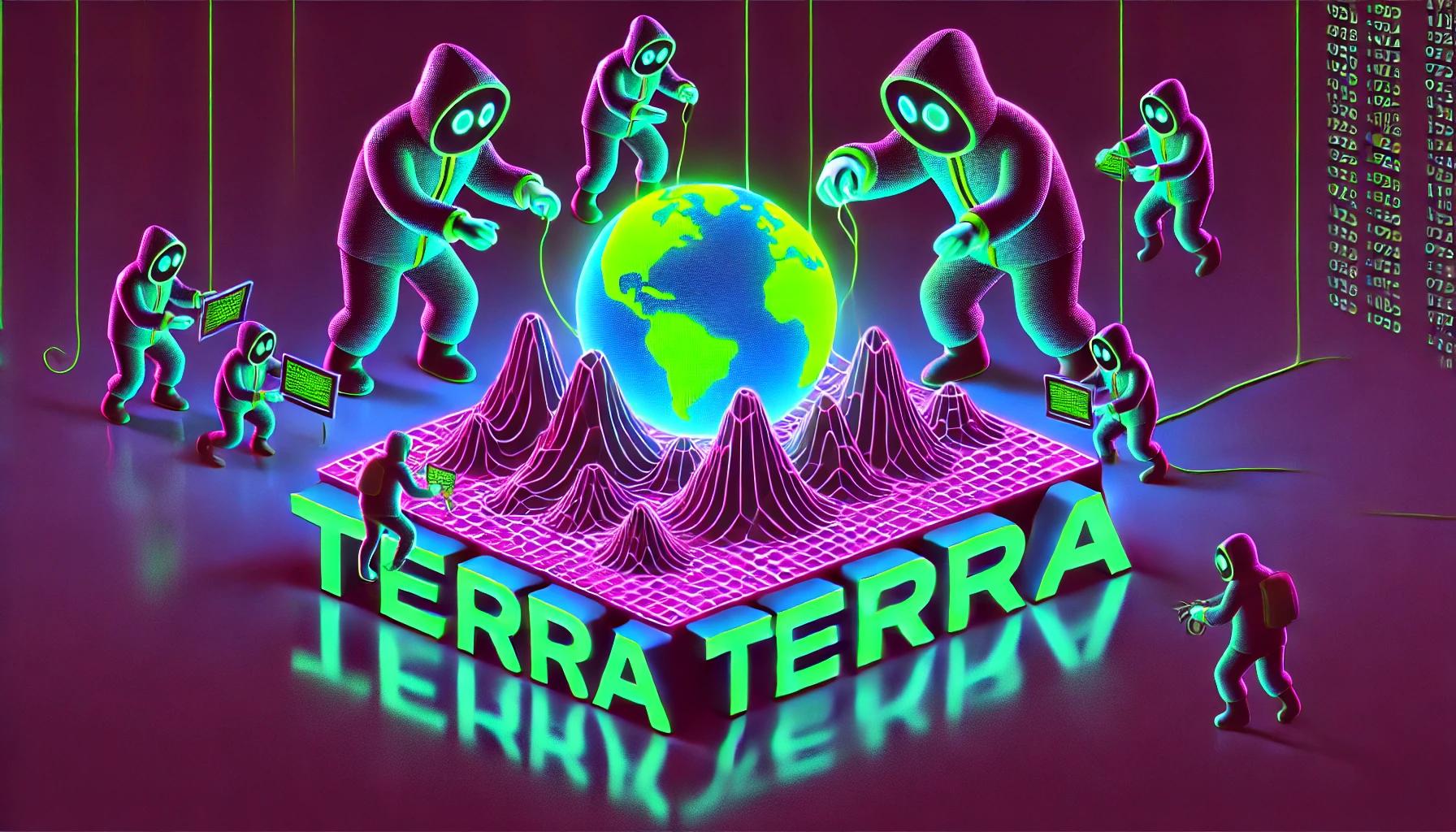
The attack, which exploited a vulnerability disclosed in April, drained around 60 million ASTRO tokens, sending the price plummeting.
The Terra blockchain has been exploited for over $6 million, forcing developers to take a momentary break the chain.
Beosin Cyber Security Company reported that the protocol lost 60 million ASTRO tokens, 3.5 million USDC, 500,000 USDT, and 2.7 BTC or $180,000.
Terra developers paused the chain on Wednesday morning to apply an emergency patch that would address the attack. Moments later, a 67% majority of validators upgraded their nodes and resumed block production.
The ASTRO token has plunged as much as 75%. It is now trading at $0.03, a 25% decline on the day. Traders who took advantage of the drop are now on 195%.
The vulnerability that took down the Cosmos-based blockchain was disclosed in April and involved the deployment of a malicious CosmWasm contract. It opened the door to attacks via what is called an “ibc-hooks callback timeout reentrancy vulnerability,” which is used to invoke contracts and enable cross-chain swaps.
Terra 2.0 also suffered a massive drop in total value locked (TVL) in April, shortly after the vulnerability was discovered. It plunged 80% to $6 million from $30 million in TVL and has since lost nearly half of that value, currently sitting at $3.9 million.
The current Earth chain emerged from the rubble as a hard fork after the original blockchain, now called Terra Classic, collapsed in 2022. Terra collapsed after its algorithmic stablecoin (UST) lost its peg, causing a run on deposits. More than $50 billion of UST’s market cap was wiped out in a matter of days.
Terraform Labs, the company behind the blockchain, has been slowly unravelling its legal woes since its mid-2022 crash. Founder Do Kwon awaits sentencing in Montenegro after he and his company were found liable for $40 billion in customer funds in early April.
On June 12, Terraform Labs settled with the SEC for $4.4 billion, for which the company will pay about $3.59 billion plus interest and a $420 million penalty. Meanwhile, Kwon will pay $204.3 million, including $110 million in restitution, interest and an $80 million penalty, a court filing showed.
News
Google and Coinbase Veterans Raise $5M to Build Icebreaker, Blockchain’s Answer to LinkedIn

Icebreaker: Think LinkedIn but on a Blockchain—announced Wednesday that it has secured $5 million in seed funding. CoinFund led the round, with participation from Accomplice, Anagram, and Legion Capital, among others.
The company, which is valued at $21 million, aims to become the world’s first open-source network for professional connections. Its co-founders, Dan Stone and Jack Dillé, come from Google AND Monetary base; Stone was a product manager at the cryptocurrency giant and also the co-creator of Google’s largest multi-identity measurement and marketing platform, while Dillé was a design manager for Google Working area.
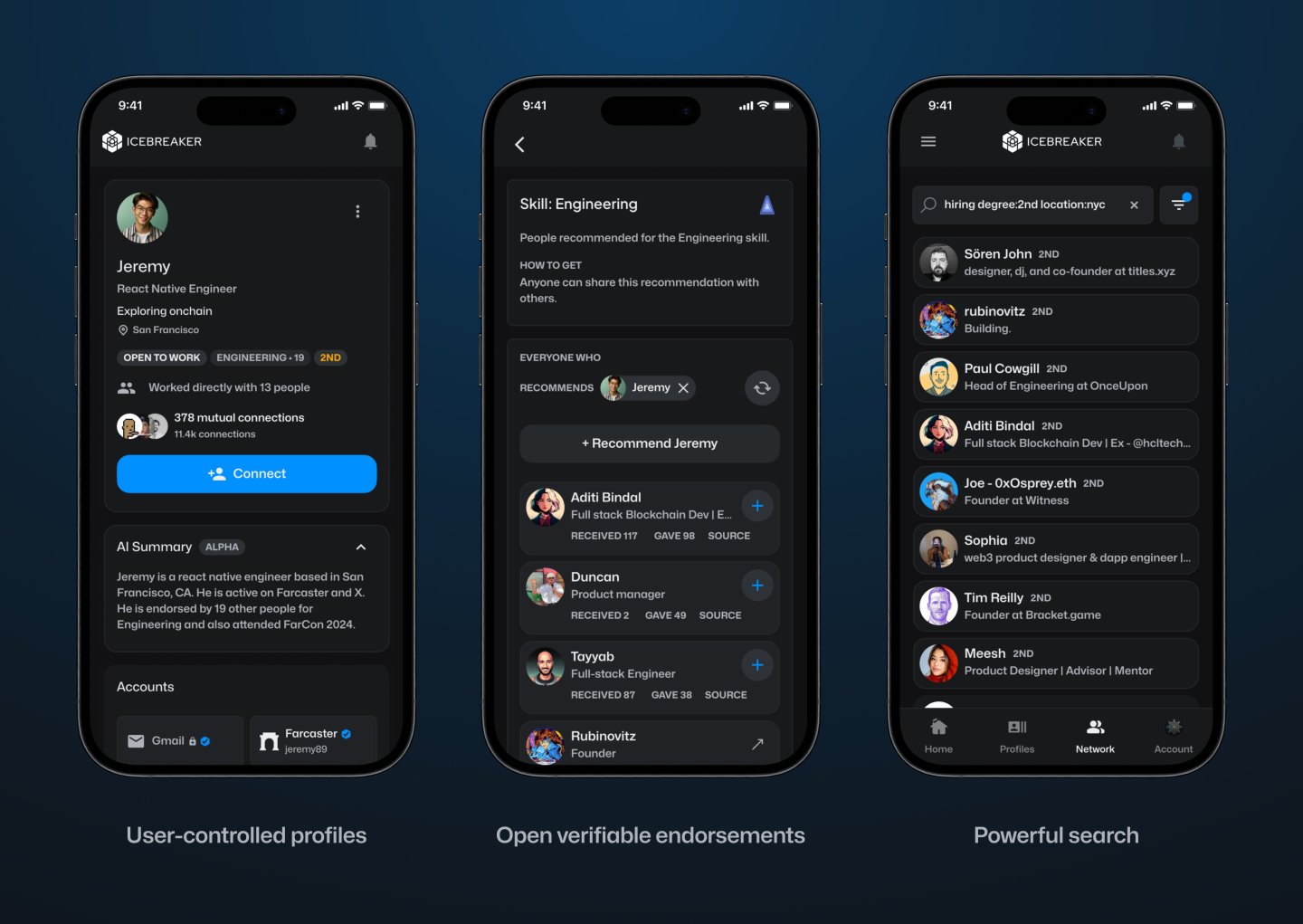
The pair founded Icebreaker on the shared belief that the imprint of one’s digital identity (and reputation) should not be owned by a single entity, but rather publicly owned and accessible to all. Frustrated that platforms like LinkedIn To limit how we leverage our connections, Dillé told Fortune he hopes to remove paywalls and credits, which “force us to pay just to browse our network.” Using blockchain technology, Icebreaker lets users transfer their existing professional profile and network into a single, verified channel.
“Imagine clicking the login button and then seeing your entire network on LinkedIn, ChirpingFarcaster and email? Imagine how many introductions could be routed more effectively if you could see the full picture of how you’re connected to someone,” Stone told Fortune.
Users can instantly prove their credentials and provide verifiable endorsements for people in their network. The idea is to create an “open graph of reputation and identity,” according to the founders. They hope to challenge LinkedIn’s closed network that “secures data,” freeing users to search for candidates and opportunities wherever they are online. By building on-chain, the founders note, they will create a public ledger of shared context and trust.
Verified channels are now launched for
Chirping
Online Guide
Wallet
Discord
Telephone
TeleporterYou can find them in Account -> Linked Accounts Italian: https://t.co/mRDyuWW8O2
— Icebreaker (@icebreaker_xyz) April 3, 2024
“Digital networking is increasingly saturated with noise and AI-driven fake personas,” the founders said in a statement. For example: Dillé’s LinkedIn headline reads “CEO of Google,” a small piece of digital performance art to draw attention to unverifiable information on Web2 social networks that can leave both candidates and recruiters vulnerable to false claims.
“Icebreaker was created to enable professionals to seamlessly tap into their existing profiles and networks to surface exceptional people and opportunities, using recent advances in cryptographically verifiable identity,” the company said, adding that the new funding will go towards expanding its team and developing products.
“One of the next significant use cases for cryptocurrency is the development of fundamental social graphs for applications to leverage… We are proud to support Dan, Jack and their team in their mission to bring true professional identity ownership to everyone online,” said CoinFund CIO Alex Felix in a statement.
Learn more about all things cryptocurrency with short, easy-to-read flashcards. Click here to Fortune’s Crash Course in Cryptocurrency.
Fuente
News
Luxembourg proposes updates to blockchain laws | Insights and resources
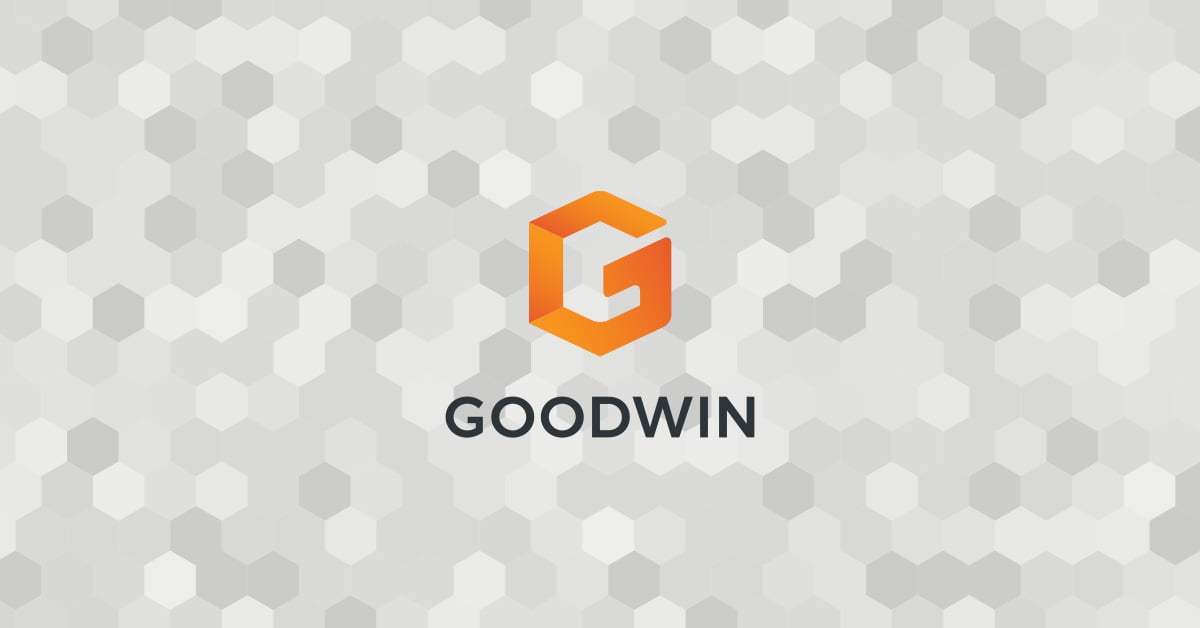
On July 24, 2024, the Ministry of Finance proposed Blockchain Bill IVwhich will provide greater flexibility and legal certainty for issuers using Distributed Ledger Technology (DLT). The bill will update three of Luxembourg’s financial laws, the Law of 6 April 2013 on dematerialised securitiesTHE Law of 5 April 1993 on the financial sector and the Law of 23 December 1998 establishing a financial sector supervisory commissionThis bill includes the additional option of a supervisory agent role and the inclusion of equity securities in dematerialized form.
DLT and Luxembourg
DLT is increasingly used in the financial and fund management sector in Luxembourg, offering numerous benefits and transforming various aspects of the industry.
Here are some examples:
- Digital Bonds: Luxembourg has seen multiple digital bond issuances via DLT. For example, the European Investment Bank has issued bonds that are registered, transferred and stored via DLT processes. These bonds are governed by Luxembourg law and registered on proprietary DLT platforms.
- Fund Administration: DLT can streamline fund administration processes, offering new opportunities and efficiencies for intermediaries, and can do the following:
- Automate capital calls and distributions using smart contracts,
- Simplify audits and ensure reporting accuracy through transparent and immutable transaction records.
- Warranty Management: Luxembourg-based DLT platforms allow clients to swap ownership of baskets of securities between different collateral pools at precise times.
- Tokenization: DLT is used to tokenize various assets, including real estate and luxury goods, by representing them in a tokenized and fractionalized format on the blockchain. This process can improve the liquidity and accessibility of traditionally illiquid assets.
- Tokenization of investment funds: DLT is being explored for the tokenization of investment funds, which can streamline the supply chain, reduce costs, and enable faster transactions. DLT can automate various elements of the supply chain, reducing the need for reconciliations between entities such as custodians, administrators, and investment managers.
- Issuance, settlement and payment platforms:Market participants are developing trusted networks using DLT technology to serve as a single source of shared truth among participants in financial instrument investment ecosystems.
- Legal framework: Luxembourg has adapted its legal framework to accommodate DLT, recognising the validity and enforceability of DLT-based financial instruments. This includes the following:
- Allow the use of DLT for the issuance of dematerialized securities,
- Recognize DLT for the circulation of securities,
- Enabling financial collateral arrangements on DLT financial instruments.
- Regulatory compliance: DLT can improve transparency in fund share ownership and regulatory compliance, providing fund managers with new opportunities for liquidity management and operational efficiency.
- Financial inclusion: By leveraging DLT, Luxembourg aims to promote greater financial inclusion and participation, potentially creating a more diverse and resilient financial system.
- Governance and ethics:The implementation of DLT can promote higher standards of governance and ethics, contributing to a more sustainable and responsible financial sector.
Luxembourg’s approach to DLT in finance and fund management is characterised by a principle of technology neutrality, recognising that innovative processes and technologies can contribute to improving financial services. This is exemplified by its commitment to creating a compatible legal and regulatory framework.
Short story
Luxembourg has already enacted three major blockchain-related laws, often referred to as Blockchain I, II and III.
Blockchain Law I (2019): This law, passed on March 1, 2019, was one of the first in the EU to recognize blockchain as equivalent to traditional transactions. It allowed the use of DLT for account registration, transfer, and materialization of securities.
Blockchain Law II (2021): Enacted on 22 January 2021, this law strengthened the Luxembourg legal framework on dematerialised securities. It recognised the possibility of using secure electronic registration mechanisms to issue such securities and expanded access for all credit institutions and investment firms.
Blockchain Act III (2023): Also known as Bill 8055, this is the most recent law in the blockchain field and was passed on March 14, 2023. This law has integrated the Luxembourg DLT framework in the following way:
- Update of the Act of 5 August 2005 on provisions relating to financial collateral to enable the use of electronic DLT as collateral on financial instruments registered in securities accounts,
- Implementation of EU Regulation 2022/858 on a pilot scheme for DLT-based market infrastructures (DLT Pilot Regulation),
- Redefining the notion of financial instruments in Law of 5 April 1993 on the financial sector and the Law of 30 May 2018 on financial instruments markets to align with the corresponding European regulations, including MiFID.
The Blockchain III Act strengthened the collateral rules for digital assets and aimed to increase legal certainty by allowing securities accounts on DLT to be pledged, while maintaining the efficient system of the 2005 Act on Financial Collateral Arrangements.
With the Blockchain IV bill, Luxembourg will build on the foundations laid by previous Blockchain laws and aims to consolidate Luxembourg’s position as a leading hub for financial innovation in Europe.
Blockchain Bill IV
The key provisions of the Blockchain IV bill include the following:
- Expanded scope: The bill expands the Luxembourg DLT legal framework to include equity securities in addition to debt securities. This expansion will allow the fund industry and transfer agents to use DLT to manage registers of shares and units, as well as to process fund shares.
- New role of the control agent: The bill introduces the role of a control agent as an alternative to the central account custodian for the issuance of dematerialised securities via DLT. This control agent can be an EU investment firm or a credit institution chosen by the issuer. This new role does not replace the current central account custodian, but, like all other roles, it must be notified to the Commission de Surveillance du Secteur Financier (CSSF), which is designated as the competent supervisory authority. The notification must be submitted two months after the control agent starts its activities.
- Responsibilities of the control agent: The control agent will manage the securities issuance account, verify the consistency between the securities issued and those registered on the DLT network, and supervise the chain of custody of the securities at the account holder and investor level.
- Simplified payment processesThe bill allows issuers to meet payment obligations under securities (such as interest, dividends or repayments) as soon as they have paid the relevant amounts to the paying agent, settlement agent or central account custodian.
- Simplified issuance and reconciliationThe bill simplifies the process of issuing, holding and reconciling dematerialized securities through DLT, eliminating the need for a central custodian to have a second level of custody and allowing securities to be credited directly to the accounts of investors or their delegates.
- Smart Contract Integration:The new processes can be executed using smart contracts with the assistance of the control agent, potentially increasing efficiency and reducing intermediation.
These changes are expected to bring several benefits to the Luxembourg financial sector, including:
- Fund Operations: Greater efficiency and reduced costs by leveraging DLT for the issuance and transfer of fund shares.
- Financial transactions: Greater transparency and security.
- Transparency of the regulatory environment: Increased attractiveness and competitiveness of the Luxembourg financial centre through greater legal clarity and flexibility for issuers and investors using DLT.
- Smart Contracts: Potential for automation of contractual terms, reduction of intermediaries and improvement of transaction traceability through smart contracts.
Blockchain Bill IV is part of Luxembourg’s ongoing strategy to develop a strong digital ecosystem as part of its economy and maintain its status as a leading hub for financial innovation. Luxembourg is positioning itself at the forefront of Europe’s growing digital financial landscape by constantly updating its regulatory framework.
Local regulations, such as Luxembourg law, complement European regulations by providing a more specific legal framework, adapted to local specificities. These local laws, together with European initiatives, aim to improve both the use and the security of projects involving new technologies. They help establish clear standards and promote consumer trust, while promoting innovation and ensuring better protection against potential risks associated with these emerging technologies. Check out our latest posts on these topics and, for more information on this law, blockchain technology and the tokenization mechanism, do not hesitate to contact us.
We are available to discuss any project related to digital finance, cryptocurrencies and disruptive technologies.
This informational piece, which may be considered advertising under the ethics rules of some jurisdictions, is provided with the understanding that it does not constitute the rendering of legal or other professional advice by Goodwin or its attorneys. Past results do not guarantee a similar outcome.
News
New bill pushes Department of Veterans Affairs to examine how blockchain can improve its work

The Department of Veterans Affairs would have to evaluate how blockchain technology could be used to improve benefits and services offered to veterans, according to a legislative proposal introduced Tuesday.
The bill, sponsored by Rep. Nancy Mace, R-S.C., would direct the VA to “conduct a comprehensive study of the feasibility, potential benefits, and risks associated with using distributed ledger technology in various programs and services.”
Distributed ledger technology, including blockchain, is used to protect and track information by storing data across multiple computers and keeping a record of its use.
According to the text of the legislation, which Mace’s office shared exclusively with Nextgov/FCW ahead of its publication, blockchain “could significantly improve benefits allocation, insurance program management, and recordkeeping within the Department of Veterans Affairs.”
“We need to bring the federal government into the 21st century,” Mace said in a statement. “This bill will open the door to research on improving outdated systems that fail our veterans because we owe it to them to use every tool at our disposal to improve their lives.”
Within one year of the law taking effect, the Department of Veterans Affairs will be required to submit a report to the House and Senate Veterans Affairs committees detailing its findings, as well as the benefits and risks identified in using the technology.
The mandatory review is expected to include information on how the department’s use of blockchain could improve the way benefits decisions are administered, improve the management and security of veterans’ personal data, streamline the insurance claims process, and “increase transparency and accountability in service delivery.”
The Department of Veterans Affairs has been studying the potential benefits of using distributed ledger technology, with the department emission a request for information in November 2021 seeking input from contractors on how blockchain could be leveraged, in part, to streamline its supply chains and “secure data sharing between institutions.”
The VA’s National Institute of Artificial Intelligence has also valued the use of blockchain, with three of the use cases tested during the 2021 AI tech sprint focused on examining its capabilities.
Mace previously introduced a May bill that would direct Customs and Border Protection to create a public blockchain platform to store and share data collected at U.S. borders.
Lawmakers also proposed additional measures that would push the Department of Veterans Affairs to consider adopting other modernized technologies to improve veteran services.
Rep. David Valadao, R-Calif., introduced legislation in June that would have directed the department to report to lawmakers on how it plans to expand the use of “certain automation tools” to process veterans’ claims. The House of Representatives Subcommittee on Disability Assistance and Memorial Affairs gave a favorable hearing on the congressman’s bill during a Markup of July 23.
-

 Videos9 months ago
Videos9 months agoCrypto News: Bitcoin, ETH Price, CPI Print, PYTH, WIF & MORE!!
-

 Videos9 months ago
Videos9 months agoCrypto News: Bitcoin Price, ETF, ETH, WIF, HNT & MORE!!
-
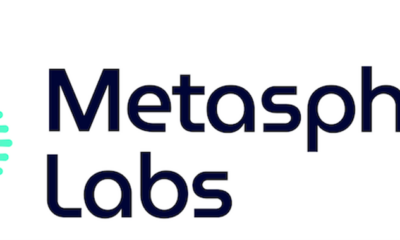
 DeFi9 months ago
DeFi9 months agoMetasphere Labs announces follow-up event regarding
-

 Videos9 months ago
Videos9 months agoSolana price potential?! Check out THIS update if you own SOL!!
-

 Videos8 months ago
Videos8 months agoWho Really CONTROLS THE MARKETS!! Her plans REVEALED!!
-

 DeFi6 months ago
DeFi6 months agoPump.Fun Overtakes Ethereum in Daily Revenue: A New Leader in DeFi
-
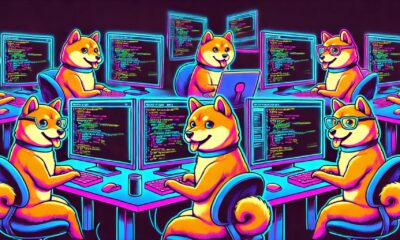
 DeFi6 months ago
DeFi6 months agoDegens Can Now Create Memecoins From Tweets
-

 News6 months ago
News6 months agoNew bill pushes Department of Veterans Affairs to examine how blockchain can improve its work
-

 News6 months ago
News6 months agoLawmakers, regulators to study impact of blockchain and cryptocurrency in Alabama • Alabama Reflector
-

 Bitcoin6 months ago
Bitcoin6 months ago1 Top Cryptocurrency That Could Surge Over 4,300%, According to This Wall Street Firm
-

 Ethereum8 months ago
Ethereum8 months agoComment deux frères auraient dérobé 25 millions de dollars lors d’un braquage d’Ethereum de 12 secondes • The Register
-

 Videos8 months ago
Videos8 months agoCryptocurrency News: BTC Rally, ETH, SOL, FTM, USDT Recover & MORE!


 ASTRO Price
ASTRO Price



